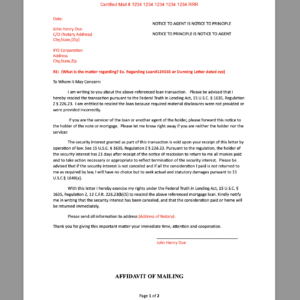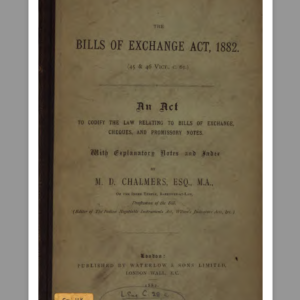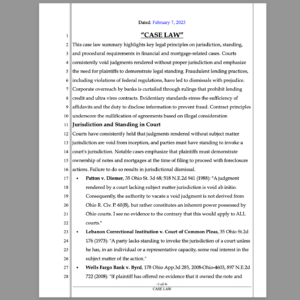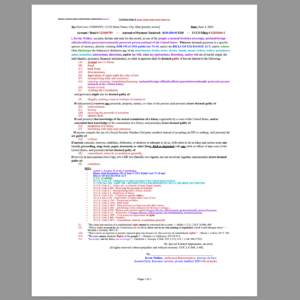Black’s Law Dictionary 3rd Edition, page 938:
IN REM . A technical term used to designate proceedings or actions instituted against the thing, in contradistinction to personal actions, which are said to be in personam. See In Personam.
It is true that, in a strict sense, a proceeding in rem is one taken directly against property, and has for its object the disposition of property, without reference to the title of individual claimants ; but, in a larger and more general sense, the terms are applied to actions between parties, where the direct object is to reach and dispose of property owned by them, or of some interest therein. Such are cases commenced by attachment against the property of debtors, or instituted to partition real estate, foreclose a mortgage, or enforce a lien. So far as they affect property in this state, they are substantially proceedings in rem in the broader sense which we have mentioned. Pennoyer v. Neff, 95 U. S. 734, 24 L. Ed. 565 ; Continental Gin Co. v. Arnold, 167 P. 613, 617, 66 Okl. 132, L. R. A. 1918B, 511 ; Grannis v. Ordean, 34 S. Ct. 779, 782, 234 U. S. 385, 58 L. Ed. 1363.
In the strict sense of the term, a proceeding “in rem” is one which is taken directly against property or one which is brought to enforce a right in a think itself. Austin v. Royal League, 316 III. 188, 147 N. E. 106, 109.
A divorce suit is a “suit in rem,” the essential characteristic of which is found in the power of the state through the decree or judgement of its court to dispose of the subject-matter of the suit, the res, in accordance with the object of the suit, whether that subject-matter be physical property or the status of one or both of the parties litigant, which decree operates immediately and absolutely upon the status of the suitor which is the res in the suit without the necessity of execution, attachment, or contempt proceedings to enforce it. Lister v. Lister, 86 N. J. Eq. 30, 97 A. 170, 173.
A proceeding ” in rem” is in effect a proceeding against the owner, as well as a proceeding against the goods, for it is his breach of the law which has to be proven to establish the forfeiture, and it is his property which is sought to be forfeited. Mack v. Westbrook, 148 Ga. 690, 98 S. E. 339, 343.












Recent Comments